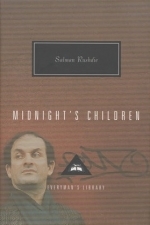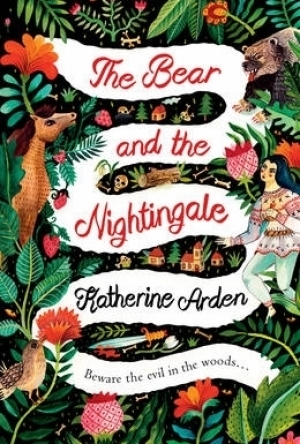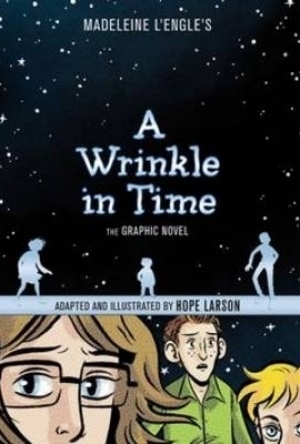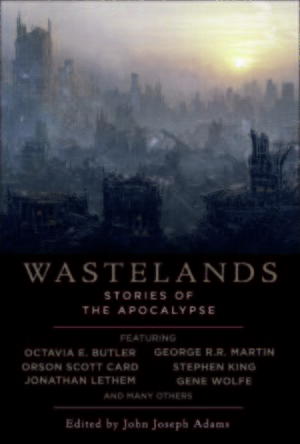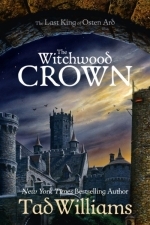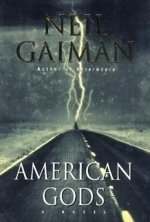Search
Search results
Lisa Ling recommended Midnight's Children in Books (curated)
Cat Goddess Freyja (16 KP) rated The Bear and the Nightingale in Books
Dec 5, 2018
Fantastic Read
Contains spoilers, click to show
I loved reading this book. Since reading it, a few weeks ago, it has become the first book that I recommend to someone looking for a good read. The author has brought her characters alive in a beautiful and alluring way. The story is based in Russia with a country noble's family being the main focus. The story itself, is a mixture of a coming of age story- in which the young main character, Vasya, discovers her place in the world- a fairy tale- a mythical snow demon who can only be calmed by a 'sacrificial' woman, who in turn fights with the snow demon against his evil brother- and a religious historical fiction- there is a strong opposition between Vasya, who believes strongly in the magic and old ways of her village, and a christian priest who comes to 'correct' their pagan beliefs and steer them towards God. There is a touch of romance, but it is not overwhelming and is charming in its own way. The characters come across as natural human beings/ mythical beings, and their choices in the story are logical and works well with whatever conflict they face. My absolute favorite thing that the author, Katherine Arden, did, however was her word choice. Karherine studied Russian in school, and knows quite a bit about its culture and language. A brilliant choice on her part, was recognizing that many of her readers may not be as familiar with the Russian language and culture as she is. So, to keep the feel of Russia alive in her book, she took the time to teach her characters beliefs to the reader, and come up with words that sound close to their Russian counterparts but are easy to pronoun for readers who don't know Russian. This is a very thoughtful fiction book and one I recommend for anyone who wants their imagination to shine.
Becs (244 KP) rated A Wrinkle in Time in Books
Oct 2, 2019
Genre: Fiction, literary classic, children’s, young adult, science fiction.
Audience: children – young adult.
Reading level: middle school.
Interests: science fiction, fantasy, mythical creatures
Style: Fantasy Sci-Fi
Point of view: Third Person with a mix of first person.
Difficulty reading: Not at all! As easy as eating a piece of cake.
Promise: Ground-breaking science fiction.
Quality: Like a banana split with extra sprinkles and a cherry on top on a hot day. 🙂
Insights: I absolutely kick myself in the a** for the not reading this sooner. I think everybody should read it, no matter how old you are. And I didn’t know it was part of a 5 book series until today! SAY WHATTTT!!!??? I’m definitely purchasing the complete series brand new (the copy I have is my mother’s and it’s old and ragedy).
Ah-Ha Moment: THE ENTIRE BOOK. No joke. Like I wasn’t expecting the main character to be a girl, let alone so young and to have such an ordinary family. You don’t see that typically!
Favorite Quotes: “Like and equal are not the same thing at all.” – This is great, especially with our history as human beings. We need to be seen as equals not just ‘like’.
“Life, with its rules, its obligations, and its freedoms, is like a sonnet: You’re given the form, but you have to write the sonnet yourself.” – Be true to yourself, for there is nobody like you in the entire universe.
“Experiment is the mother of knowledge.” – You can’t just go into life expecting to know everything and how it’s all going to end. You have to experiment because then you gain the knowledge that others may have not known.
Aesthetics: My old first edition copy has a really neat cover, it’s what drew me in originally. I loved the take on the story and how in my mind, I can actually imagine the different characters and their surroundings. It’s a weird yet interesting book.
“People are more than just the way they look.”
Audience: children – young adult.
Reading level: middle school.
Interests: science fiction, fantasy, mythical creatures
Style: Fantasy Sci-Fi
Point of view: Third Person with a mix of first person.
Difficulty reading: Not at all! As easy as eating a piece of cake.
Promise: Ground-breaking science fiction.
Quality: Like a banana split with extra sprinkles and a cherry on top on a hot day. 🙂
Insights: I absolutely kick myself in the a** for the not reading this sooner. I think everybody should read it, no matter how old you are. And I didn’t know it was part of a 5 book series until today! SAY WHATTTT!!!??? I’m definitely purchasing the complete series brand new (the copy I have is my mother’s and it’s old and ragedy).
Ah-Ha Moment: THE ENTIRE BOOK. No joke. Like I wasn’t expecting the main character to be a girl, let alone so young and to have such an ordinary family. You don’t see that typically!
Favorite Quotes: “Like and equal are not the same thing at all.” – This is great, especially with our history as human beings. We need to be seen as equals not just ‘like’.
“Life, with its rules, its obligations, and its freedoms, is like a sonnet: You’re given the form, but you have to write the sonnet yourself.” – Be true to yourself, for there is nobody like you in the entire universe.
“Experiment is the mother of knowledge.” – You can’t just go into life expecting to know everything and how it’s all going to end. You have to experiment because then you gain the knowledge that others may have not known.
Aesthetics: My old first edition copy has a really neat cover, it’s what drew me in originally. I loved the take on the story and how in my mind, I can actually imagine the different characters and their surroundings. It’s a weird yet interesting book.
“People are more than just the way they look.”
Hadley (567 KP) rated Wastelands: Stories of the Apocalypse in Books
Aug 19, 2020
From the Book of Revelations to the Road Warrior; from A Canticle for Leibowitz to the Road, storytellers have long imagined the end of the world, weaving eschatological tales of catastrophe, chaos, and calamity. In doing so, these visionary authors have addressed one of the most challenging and enduring themes of imaginative fiction: the nature of life in the aftermath of total societal collapse.
Overall, there were a few good stories inside this book, but some of them seemed out of place, and there were ones that were just boring or not written well (like ending the story just to make it a short story). I only recommend this book to people who absolutely love dystopian stories, but for those who are just light readers of it, I don't think you'd enjoy it.
Being that this is a review for a handful of short stories, I am only going to mention the ones I really liked.
"Salvage" by Orson Scott Card
A long time after atom bombs have destroyed most of the Earth, a young man named Deaver finds out that there may be gold hidden within a Mormon temple, and he's willing to risk everything to get it.
I loved the story, the characters, and the playful banter between them.
"Bread and Bombs" by M. Rickert
During war time, children become curious about an odd neighbor who moves in. Parents demand that their children stay away from them because the neighbor's people are the reason so many people have died.
I liked that the story is through the childrens' eyes, not the adults.
"Dark, Dark Were the Tunnels" by George R. R. Martin
In the story that follows, you'll meet Greel. He is a scout of the People. He's penetrated the Oldest Tunnels, where the taletellers said the People had come from a million years ago. He is no coward, but he is afraid, and with good reason. You see, he's very used to being in the dark, but some visitors have come to the tunnels, and they've brought light with them...
I really liked the whole idea of people tunneling underground when nuclear war happens; there are not enough stories written about this!
"Never Despair" by Jack McDevitt
'Never Despair' tells the story of Chaka Milana, a woman who leaves her hometown in search of a storied place that holds the secrets of the Roadmakers, the almost-mythical builders of the concrete strips that cover the land, and the ruined cities with towers so high that a person could not ascend one in a day.
The story was so good that I wish it were a novel.
"Artie's Angels" by Catherine Wells
A post-apocalyptic society involving bicycles and young men.
This was probably my most favorite story out of the entire book!
"Inertia" by Nancy Kress
A story about the victims of a disfiguring epidemic who are interned in the modern equivalent of leper colonies.
Kress was able to make such a big picture out of very few characters, and in just a few pages. Really well-written.
"The End of the World As We Know It" by Dale Bailey
A lone survivor of an apocalypse attempts to grapple with the emotional dimension of his loss.
Just a really good story.
Overall, there were a few good stories inside this book, but some of them seemed out of place, and there were ones that were just boring or not written well (like ending the story just to make it a short story). I only recommend this book to people who absolutely love dystopian stories, but for those who are just light readers of it, I don't think you'd enjoy it.
Being that this is a review for a handful of short stories, I am only going to mention the ones I really liked.
"Salvage" by Orson Scott Card
A long time after atom bombs have destroyed most of the Earth, a young man named Deaver finds out that there may be gold hidden within a Mormon temple, and he's willing to risk everything to get it.
I loved the story, the characters, and the playful banter between them.
"Bread and Bombs" by M. Rickert
During war time, children become curious about an odd neighbor who moves in. Parents demand that their children stay away from them because the neighbor's people are the reason so many people have died.
I liked that the story is through the childrens' eyes, not the adults.
"Dark, Dark Were the Tunnels" by George R. R. Martin
In the story that follows, you'll meet Greel. He is a scout of the People. He's penetrated the Oldest Tunnels, where the taletellers said the People had come from a million years ago. He is no coward, but he is afraid, and with good reason. You see, he's very used to being in the dark, but some visitors have come to the tunnels, and they've brought light with them...
I really liked the whole idea of people tunneling underground when nuclear war happens; there are not enough stories written about this!
"Never Despair" by Jack McDevitt
'Never Despair' tells the story of Chaka Milana, a woman who leaves her hometown in search of a storied place that holds the secrets of the Roadmakers, the almost-mythical builders of the concrete strips that cover the land, and the ruined cities with towers so high that a person could not ascend one in a day.
The story was so good that I wish it were a novel.
"Artie's Angels" by Catherine Wells
A post-apocalyptic society involving bicycles and young men.
This was probably my most favorite story out of the entire book!
"Inertia" by Nancy Kress
A story about the victims of a disfiguring epidemic who are interned in the modern equivalent of leper colonies.
Kress was able to make such a big picture out of very few characters, and in just a few pages. Really well-written.
"The End of the World As We Know It" by Dale Bailey
A lone survivor of an apocalypse attempts to grapple with the emotional dimension of his loss.
Just a really good story.
Hazel (1853 KP) rated The Witchwood Crown in Books
Jul 22, 2017
Gosh, what a long book!
Review I received this book for free through Goodreads First Reads.
Approximately 30 years ago, the first novel in Tad Williams’ Memory, Sorrow and Thorn trilogy was published. Fans all over the world adored this high fantasy story about a young kitchen boy, Simon, who goes on to become King of Ostern Ard. Now Williams’ has returned to the fictional lands with a follow-up trilogy, The Last King of Ostern Ard.
Three decades have been and gone since the ending of the previous series. The Witchwood Crown explores the changes that have occurred since the epic story finished, unfortunately, things are not looking good. Simon and his wife, Miriamele, have suffered a few personal tragedies, leaving them with two fatherless grandchildren. Young Lillia is an out spoken child who expostulates with everyone in order to get her way – she is a princess after all. Morgan, the heir, is rather obtuse in comparison; a lazy young man whose vexatious behaviour constantly causes the Royals to despair. However, this is only a tiny problem in their restless kingdom.
The Norn Queen, an antagonist of the original story, has been asleep for the past few decades. Mortals foolishly believed they were safe from the evil character, yet unexpectedly, she has awoken and is determined to destroy humanity. Too weak to carry out her own plans, she infiltrates the minds of the members of her immortal race, sending them off on perilous missions, for example, to extract blood from a live dragon.
As well as Simon’s city and the Norns, there are several more important characters and locations, each with their own on going storyline. A mix of assiduous and animus personas shake up the peace that had settled at the closing of Memory, Sorrow and Thorn. It is almost impossible to fathom whom the good and bad are, especially when reading from so many different points of view.
If the 700 odd pages did not already give it away, the inclusion of maps and appendixes prove the book to contain an extremely lengthy tale. Flitting from one set of characters to another, it is hard to keep up with the hundreds of names and roles. It does not help that the majority are unpronounceable, full of additional apostrophes making them as unlike English names as possible – a usual trait of fantasy fiction.
Not only are the names difficult to pronounce, the words and vernacular some of the characters use are just as dumbfounding. Thankfully, definitions are provided at the back of the book, but to keep flipping between pages can get quite tedious after a while.
The sheer number of characters makes it difficult to unearth the main storyline. In fact, there does not appear to be a strong plot at all. Judging by the ending, it is as though The Witchwood Crown is only an introduction to the narrative that will begin in the following book.
Reading the primary series first will have its benefits, however, it is not mandatory. New readers, like myself, are able to pick up snippets of past events and piece together the lead up to the current scenario. Although a work of historical fantasy, it is possible to see elements of real life within the story. Dragons and fairies may not exist in our world, but similar beliefs and systems are relatable. For instance, the days of the week are obviously based on the English names: Sunday, Moonday, Tiasday, Udunsday, Drorsday, Frayday and Satrinsday.
The most striking connection between real and imagined is the religious beliefs of different clans and species. Many of the mortals have taken, up what is suggested to be, a new religion. There are so many similarities; it is undoubtedly based on Christianity. Likewise, other beliefs are comparable to pagan rites and ceremonies of the distant past.
The Witchwood Crown is not an easy book to read, neither is it all that exciting. On the other hand, it is interesting. It is equivalent to reading historical information with the added benefit of mythical creatures. This is not a quick read; therefore you need to be dedicated to sitting down and pacing through the story. It is definitely targeted at high fantasy fans – in fact, the original stories influenced George R. R. Martin (A Game of Thrones) – who are used to the length and complexity of the narrative
Approximately 30 years ago, the first novel in Tad Williams’ Memory, Sorrow and Thorn trilogy was published. Fans all over the world adored this high fantasy story about a young kitchen boy, Simon, who goes on to become King of Ostern Ard. Now Williams’ has returned to the fictional lands with a follow-up trilogy, The Last King of Ostern Ard.
Three decades have been and gone since the ending of the previous series. The Witchwood Crown explores the changes that have occurred since the epic story finished, unfortunately, things are not looking good. Simon and his wife, Miriamele, have suffered a few personal tragedies, leaving them with two fatherless grandchildren. Young Lillia is an out spoken child who expostulates with everyone in order to get her way – she is a princess after all. Morgan, the heir, is rather obtuse in comparison; a lazy young man whose vexatious behaviour constantly causes the Royals to despair. However, this is only a tiny problem in their restless kingdom.
The Norn Queen, an antagonist of the original story, has been asleep for the past few decades. Mortals foolishly believed they were safe from the evil character, yet unexpectedly, she has awoken and is determined to destroy humanity. Too weak to carry out her own plans, she infiltrates the minds of the members of her immortal race, sending them off on perilous missions, for example, to extract blood from a live dragon.
As well as Simon’s city and the Norns, there are several more important characters and locations, each with their own on going storyline. A mix of assiduous and animus personas shake up the peace that had settled at the closing of Memory, Sorrow and Thorn. It is almost impossible to fathom whom the good and bad are, especially when reading from so many different points of view.
If the 700 odd pages did not already give it away, the inclusion of maps and appendixes prove the book to contain an extremely lengthy tale. Flitting from one set of characters to another, it is hard to keep up with the hundreds of names and roles. It does not help that the majority are unpronounceable, full of additional apostrophes making them as unlike English names as possible – a usual trait of fantasy fiction.
Not only are the names difficult to pronounce, the words and vernacular some of the characters use are just as dumbfounding. Thankfully, definitions are provided at the back of the book, but to keep flipping between pages can get quite tedious after a while.
The sheer number of characters makes it difficult to unearth the main storyline. In fact, there does not appear to be a strong plot at all. Judging by the ending, it is as though The Witchwood Crown is only an introduction to the narrative that will begin in the following book.
Reading the primary series first will have its benefits, however, it is not mandatory. New readers, like myself, are able to pick up snippets of past events and piece together the lead up to the current scenario. Although a work of historical fantasy, it is possible to see elements of real life within the story. Dragons and fairies may not exist in our world, but similar beliefs and systems are relatable. For instance, the days of the week are obviously based on the English names: Sunday, Moonday, Tiasday, Udunsday, Drorsday, Frayday and Satrinsday.
The most striking connection between real and imagined is the religious beliefs of different clans and species. Many of the mortals have taken, up what is suggested to be, a new religion. There are so many similarities; it is undoubtedly based on Christianity. Likewise, other beliefs are comparable to pagan rites and ceremonies of the distant past.
The Witchwood Crown is not an easy book to read, neither is it all that exciting. On the other hand, it is interesting. It is equivalent to reading historical information with the added benefit of mythical creatures. This is not a quick read; therefore you need to be dedicated to sitting down and pacing through the story. It is definitely targeted at high fantasy fans – in fact, the original stories influenced George R. R. Martin (A Game of Thrones) – who are used to the length and complexity of the narrative
Hadley (567 KP) rated American Gods in Books
Jun 5, 2020
Mad Sweeney (1 more)
Gaiman's writing and descriptions
No character development (2 more)
Dehumanizes women
The ending
The gods of the old world still exist in Neil Gaiman's 2001 novel "American Gods."
A science fiction/ fantasy story set in today's America, American Gods tries to answer the question of what happens when people stop believing in the past gods, and start worshiping new ones?
Shadow is our main character, who we meet while he's attempting to get released from prison after three years of incarceration - - - afterall, he has a job, wife and life waiting for him on the outside. And even though he's built up a strong exterior while in prison, everything comes crashing down after he receives news that his wife and best friend have died in a car accident.
Cue Wednesday, an old, odd man who gives Shadow a job after his release from prison - - - with strings attached: Shadow can't ask any questions, he must protect his employer at all costs, and if people need to be hurt, he must hurt them. Although Wednesday doesn't tell him exactly what is going on, Shadow agrees to his duties and begins a road trip with the eccentric old man, meeting an array of colorful characters along the way. But soon, Shadow begins to realize that his employer may be a mythical god in disguise, yet, oddly Shadow never really questions it or anything in the entire book for that matter.
The novel takes an odd turn early on when Shadow's dead wife, Laura, comes back to life in a zombified way. While Shadow is staying in a cheap hotel room, and Wednesday sharing a room with a young hotel employee in another, Shadow sees his wife in the clothing she was buried in, but he doesn't flinch - - - he carries a very calm conversation with dead Laura, he even goes down to the lobby to buy her a pack of cigarettes, and the next morning, he still doesn't seem bothered by it when he sees her muddy footprints on the floor. Wednesday tries to convince Shadow it was a dream, but makes snarky remarks that tells Shadow that even he knows it wasn't a dream. The two simply move on on their road trip, no questions asked.
But during this road trip, Shadow's suspicions are confirmed. He gets to see not only Wednesday, but two others in their true god-form, and afterwards, Wednesday confirms that he is indeed the Norse god, Odin.
Gaiman's take on mythological gods living in today's society is interesting, but disappointing. From recognizable gods to the forgotten ones, readers with a liking to history would probably enjoy this story most.
American Gods centers on the question of what happens to gods when they are no longer worshipped, and Gaiman merely focuses on male gods, while making all female characters (gods and humans) either prostitutes and/or sexual objects which is really off-putting for me as a female reader. And Gaiman's character development in the novel for gods and humans is nowhere to be seen thus lending very little plot development that is actually believable or enjoyable. I was unable to bring myself to care about our main character, Shadow, nor the plight with his zombie wife.And speaking of Laura, the disappointing character traits makes her not just unlikable, but also an unnecessary character overall.
I just can't recommend this book: the novel is good for the first 100 pages, but you could easily skip the next 450 pages that is just filler, and not miss much of the story. Gaiman also dehumanizes women, introduces characters in a way that would make them seem an important part of the story to only drop them out of it as quickly as they came in, and the ending is just a huge disappointment. All in all, Gaiman had a great idea, but the execution he used was poorly done - - - some parts even seem like Gaiman wrote them in a completely different state of mind, contradicting story lines and character traits altogether.
I did, however, have three favorite characters that weren't utilized enough for me to rate the story higher than I have: Mad Sweeney, Ibis and Jacquel. Mad Sweeney is a giant leprechaun that can pull gold coins out of the air; Ibis and Jacquel are Anubis and Jackel from Egyptian mythology, who run a funeral home in Cairo, Illinois today.
American Gods takes place only over a few months, which is surprising with how long the novel is. But the story is a buildup with no climax. Most characters come and go before readers can even decide if they like them or not,and that paired up with severe lack of character development leaves most of the main characters pretty forgettable. With this special edition containing 1200 more words, the story is still not worth it in the end. Gaiman is still a great writer, but this is not the book to recommend to anyone who wants to begin reading his work.
A science fiction/ fantasy story set in today's America, American Gods tries to answer the question of what happens when people stop believing in the past gods, and start worshiping new ones?
Shadow is our main character, who we meet while he's attempting to get released from prison after three years of incarceration - - - afterall, he has a job, wife and life waiting for him on the outside. And even though he's built up a strong exterior while in prison, everything comes crashing down after he receives news that his wife and best friend have died in a car accident.
Cue Wednesday, an old, odd man who gives Shadow a job after his release from prison - - - with strings attached: Shadow can't ask any questions, he must protect his employer at all costs, and if people need to be hurt, he must hurt them. Although Wednesday doesn't tell him exactly what is going on, Shadow agrees to his duties and begins a road trip with the eccentric old man, meeting an array of colorful characters along the way. But soon, Shadow begins to realize that his employer may be a mythical god in disguise, yet, oddly Shadow never really questions it or anything in the entire book for that matter.
The novel takes an odd turn early on when Shadow's dead wife, Laura, comes back to life in a zombified way. While Shadow is staying in a cheap hotel room, and Wednesday sharing a room with a young hotel employee in another, Shadow sees his wife in the clothing she was buried in, but he doesn't flinch - - - he carries a very calm conversation with dead Laura, he even goes down to the lobby to buy her a pack of cigarettes, and the next morning, he still doesn't seem bothered by it when he sees her muddy footprints on the floor. Wednesday tries to convince Shadow it was a dream, but makes snarky remarks that tells Shadow that even he knows it wasn't a dream. The two simply move on on their road trip, no questions asked.
But during this road trip, Shadow's suspicions are confirmed. He gets to see not only Wednesday, but two others in their true god-form, and afterwards, Wednesday confirms that he is indeed the Norse god, Odin.
Gaiman's take on mythological gods living in today's society is interesting, but disappointing. From recognizable gods to the forgotten ones, readers with a liking to history would probably enjoy this story most.
American Gods centers on the question of what happens to gods when they are no longer worshipped, and Gaiman merely focuses on male gods, while making all female characters (gods and humans) either prostitutes and/or sexual objects which is really off-putting for me as a female reader. And Gaiman's character development in the novel for gods and humans is nowhere to be seen thus lending very little plot development that is actually believable or enjoyable. I was unable to bring myself to care about our main character, Shadow, nor the plight with his zombie wife.And speaking of Laura, the disappointing character traits makes her not just unlikable, but also an unnecessary character overall.
I just can't recommend this book: the novel is good for the first 100 pages, but you could easily skip the next 450 pages that is just filler, and not miss much of the story. Gaiman also dehumanizes women, introduces characters in a way that would make them seem an important part of the story to only drop them out of it as quickly as they came in, and the ending is just a huge disappointment. All in all, Gaiman had a great idea, but the execution he used was poorly done - - - some parts even seem like Gaiman wrote them in a completely different state of mind, contradicting story lines and character traits altogether.
I did, however, have three favorite characters that weren't utilized enough for me to rate the story higher than I have: Mad Sweeney, Ibis and Jacquel. Mad Sweeney is a giant leprechaun that can pull gold coins out of the air; Ibis and Jacquel are Anubis and Jackel from Egyptian mythology, who run a funeral home in Cairo, Illinois today.
American Gods takes place only over a few months, which is surprising with how long the novel is. But the story is a buildup with no climax. Most characters come and go before readers can even decide if they like them or not,and that paired up with severe lack of character development leaves most of the main characters pretty forgettable. With this special edition containing 1200 more words, the story is still not worth it in the end. Gaiman is still a great writer, but this is not the book to recommend to anyone who wants to begin reading his work.
